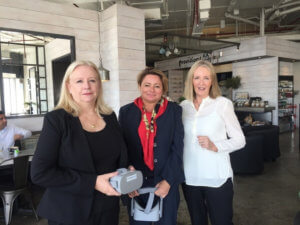Welcome to our recurring post, 3D Interactive Tech Talk, highlighting how interactive technology is being used right now and where it’s headed.
Mixed Reality Training at Rolls Royce
Engine manufacturer, Rolls Royce, has paired up with Qatar Airlines to develop a VR application designed to train engineers on disassembly of its Trent XWB engine. These engines are so massive, they must be disassembled into smaller pieces for shipment. Training to perform this (disassembly) function typically requires an actual engine to work with, of course, but not anymore.
Using what they’re calling a “mixed reality” training, Rolls Royce is using HTC Vive’s VR equipment to create a hands-on, real-life training, without sacrificing time or cost.
“The virtual reality environment simulates very effectively the physical world in which the engine separation activity takes place,” Rolls-Royce customer service training manager Steve Buckland said. “That will open up a massive opportunity to embed practical training in a virtual sense into many training courses.”
In the near future, they plan to further adapt this technology to deploy with existing refresher courses within the company. “In the same way pilots complete elements of their training in a simulator, certain engineering tasks can be taught through virtual reality,” Rolls-Royce president-civil aerospace Chris Cholerton said.
Next Bus Stop: VR Training
 Karsta Middle East, which was founded as a collaboration between Al Nowais Group, Real Serious Games and Exner Group, has set itself up as one of the premier VR training and consultant companies throughout the Middle East – and across multiple sectors.
Karsta Middle East, which was founded as a collaboration between Al Nowais Group, Real Serious Games and Exner Group, has set itself up as one of the premier VR training and consultant companies throughout the Middle East – and across multiple sectors.
RTA, one of Karsta’s newest contracts, is using VR to train thousands of its bus and taxi drivers – and has seen a 100% pass rate in the field as a result. This has been possible because drivers can use the simulated training application in their downtime to brush up information, and by nature, an immersive experience greatly increases retention rates.
According to Andrews, the wider logistics implications of a quicker and more successful training program are clear. “In aviation for instance you need 20 to 30 people coming in to clean an aircraft and get it ready for the next flight. The training time can be quicker, more successful and therefore cheaper in training them on the equipment to use, the particular checklist items to hit, so that by the time the real-world training comes about, it’s going to be much faster and retention is going to be far higher,” she says.
Melbourne Metro is also on board with this training and Karsta ME has its sights on securing Dubai Metro System next!
Do you have a question regarding this technology? Hit us up here now to discuss how this could apply to your needs.
And check out our virtual training solutions to see 6 real world case studies on how businesses are training their operations, maintenance, and field service teams.


